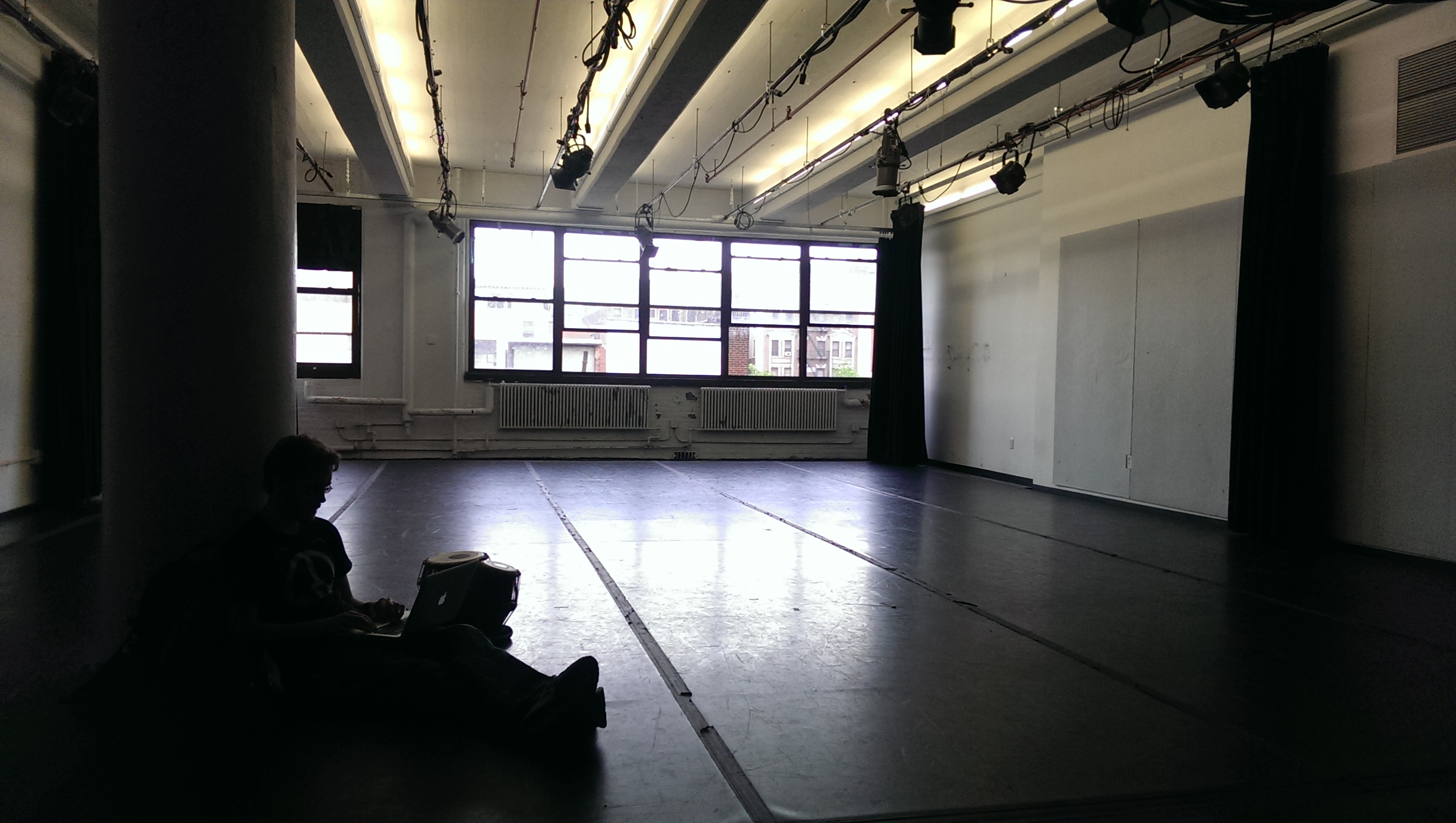
We’re all trying to board a moving bus.
Steve Foglia here. I was brought on as a Production Intern less than a month ago, which makes me effectively a veteran. Another month from now and we’ll be on our way to Nairobi.
But today is the first rehearsal. And before rehearsal comes schlepping.
I have a theory in theatre that the labor and the stagework (which I’ll use as a catchall term to include the activities involved in both rehearsal and performance) lend each other reality. Rehearsal is all theory until someone’s dragging a platform into place or putting seats in the house. Schlepping is a mindless grind until an actor stands on the stage speaking the text, reminding us all why we gathered in the first place.
As Antigone makes its way across the months of June and July and through communities in Kenya and South Africa, we’ll have a good chance to see if there’s any merit to my theory.
Today we start by picking up musical instruments from Peter Romano’s apartment. He’s recently joined as a cast member and musician, bringing with him more than a half-dozen instruments, which we manage to stuff into the car. On the other end, in Nash Studio 1, is our second and less glamorous project: cleaning our space.
10AM: it’s Gregory Mosher (director) with the mops and soap, Benita de Wit (Production Intern), Peter Romano (cast), Phumzile Sitole (cast), and me. We’ve got a couple hours to scrub a full school year of dirt and grime out of this room. Thankfully, with five people it takes no time at all, and we get to stand back, immensely proud of our work. It’s not just that the floor is beautiful and shiny: it’s that cleaning – and I guess I do mean this in as corny a way as it reads – sanctifies the space. It prepares the way for the actors and the drama. Now we’re ready to work.
Around noon we are all met. Excitement is palpable. Nerves, too. First days are hard. Mosher himself admits he often doesn’t know what to do. So we sit in a circle talking past, present, and future of the production. Given the whole moving bus thing I mentioned above, I think the group is grateful. Then we turn to the script.
“What do we know about the given circumstances of the play?” Mosher asks. Turns out the group knows its Greek. Rapidly the actors pitch in and lay out the whole tragedy of the House Of Thebes. Not for nothing is this whole enterprise called Antigone Now – our director asks us to think of the story in terms of the world today: “Thebes is a place of ongoing shame, hatred, and despair.” Sound familiar? “Polynices is an al-Shabaab guy. He’s a terrorist.” (Remember we’re headed to East Africa).
By 12:30 we’re settled down to do a first read. “Take it slow,” Mosher says. Let’s hear all these ideas.
The ideas are the major theme of the day. It’s our director’s contention that Sophocles has no peer in playwriting beyond Shakespeare when it comes to packing ideas into language. Three or four per line sometimes. It’ll drive you crazy. And it’s our job to find them and make them heard.
As soon as the first reading is done, we double back to the beginning. This time the actors are to trade off every sentence. When that’s done we double back again. Trade off every idea. Something happens. It’s hard to describe. We hear each idea, and the actors hear them in each other’s voices: they fuel one another. the play is speaking in the room.
“I think that’s what it’s gotta be for 50 minutes,” Mosher says, calling things to a stop.
-Stephen Foglia

